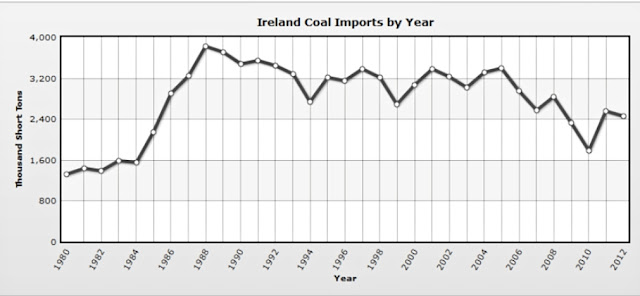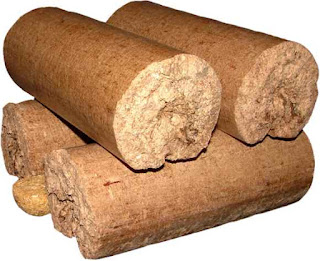.
How Will You Heat
Winter is already making it's presence felt in Ireland, it is therefore an appropriate time to re-assess the means of heating for the next seven months or so. To that end, I have already been taking a look at some multi-fuel stoves and central heating boilers, most of which can burn Various Woods, Coals, and Briquettes. These stoves and boilers are appearing in increasing numbers on the Irish market.
The dizzying rise in the price of heating oil, helped substantially in Ireland by heavy taxation, two doses of carbon tax and VAT on top for icing, has sent many of us looking in other directions for some form of affordable heat.
FUEL POVERTY FOCUS
Fuel poverty is a very real, very large, and a still growing social problem in Ireland. Unfortunately, as far as the casual observer like myself can see, the Irish Government's published policy seems short on practical clear lines of action, nor is there too much visible by way of any noticeable remedial effects.
This line of thinking, regarding Ireland being a beggared nation with a massive fuel poverty problem, has taken me to again look at the alternatives to oil fired central heating.
Below is my stab at a basic comparative analysis of the relative costs of the more common forms of heating, with special emphasis on the forms being explored by those on or close to the fuel poverty line.
************
OIL HEATING - for the better off only
BALLPARK cost 12 cent per Kw/h
At the time of writing the cost of heating oil is hovering around €950 to €970 per
1000 litres. Most households require between 1500 and 2000 litres in a
year. That works out at between €1455 and €1940 to heat the house for one year. Carbon taxes and 13.5% VAT adds a fair bit to the cost, and indeed puts oil out of reach of many users.
One litre of Kerosene heating oil costing 97cent, will give an total output 9.821 Kilowatts of heat for one hours duration. Or 1 Kw of heat for 9.821 hours if you like to put it the other way around. That gives you a GROSS heat output cost of 9.88 cent per Kw/h.
However, when calculating the actual heat that is delivered into a house, you have to allow for boiler efficiency losses, i.e. how much heat goes out the flue, and also allow for heat lost in the piping etc. A fair average efficiency for a modern boiler is 90% depending on the turning, cleaning. etc.. That 10% loss alone brings the cost figure up to 11 cent per Kw/h. Then additionally you have to add in the losses in the water and pipe system
At a rough guess, I would put the actual figure at around 11.75cent per Kw/h in a fairly efficient system,
and perhaps more like 13.00 cent per Kw/h in older or less well maintained systems. Let us take a ballpark figure of 12 Cent per Kw/h
************
ELECTRICITY
COST is between 16 and 17.92 cent per Kw/h
Electricity is 100% efficient as a heating fuel. It can also be very
exactly controlled and directed to where and when you need the heat without
heating half the house and all the piping and the boiler itself.
Currently the standard electricity charge is 0.1792 per Kw/h but most
suppliers offer discounts so you should not be paying much more than about 16.00cent per Kilowatt hour if you are savvy.
Even though electricity is a VERY expensive fuel for heating, it's ability to be precisely controlled and timed makes it a useful adjunct to other basic heat sources.
************
LOGS - WOOD BRIQUETTES or ECO LOGS
BULK PRICE Cost from 8.60 cent to 9.56 cent per Kw/h
Most of this stuff is un-seasoned and worthless
Don't even bother buying those wood blocks on the door step. Most of it is not seasoned and therefore gives so little heat output that it is not worth burning. The un-seasoned high-moisture wood generally sold in fertilizer bags gives no more than 2Kw/h per Kg. heat output, and in some cases as low as 1Kw/h per Kg.. That is between only 19% and 35% at best of the heat you can expect from the best quality wood briquettes. If you do the maths, it is really poor value for money.
Not only is green or damp wood useless for heating, the green wood of ash trees contains 35% moisture and green poplar timber contains 65% moisture, but it creates creosote which can cause many problem for you.
[I will be writing further, in a couple of weeks, on creosote and other matters pertaining to wood burning in stoves and boilers]
Unless wood has been properly seasoned for two years or is kiln dried, it is worthless as a serious fuel. That is why I am concentrating on manufactured wood fuels.
The heat output
of the average eco-logs or wood briquettes is generally seen to be somewhere between 4.77
Kw/h per Kg and 5.72Kw/h per Kg. Bought by the metric tonne or 1000Kg lots, and the
price delivered is only about 38 cent per Kg. or perhaps less.
.........................................................
ECO LOGS
ADDENDUM: I am just looking at screw extruded non-expanding EcoBlaze Wood Briquettes, and the price including delivery anywhere in the Republic of Ireland is €325 for a pallet of 950Kgs. That gives us a price per Kilogram of 34.2 cent.
If we take the
mid figure of 5.30Kw/h per Kg gross heat output, and average stove efficiency of 75%,
that gives us an actual heat delivered price of only 8.60 cent per Kw/h. And if the Government did some "Joined-up-Thinking" and removed the 13.50% VAT you could be using quality wood briquettes at only 7.58 cent per Kw/h. That would challenge coal usage!!!!
............................................................
Heat-logs, Eco-logs, or wood briquettes as they are variously known, vary a great deal in both quality and type. Some types, those made in a hammer mill, will have a rough texture - lokk a bit like chipboard and tend to break into sections. This type will expand in the fire bu up to 50% opening out like an accordion. This can present a VERY REAL DANGER.
This expanding effect has several possible negative outcomes, (1) Fuel expanding poses potential dangers, in an open fire it can spill out of the grate and possibly lead to an accident or fire. (2) In a stove filled up to burn over night, it can expand and partially block the flue outlet, which in turn could lead to the production of DEADLY carbon monoxide. (3) The expanded material can also come into contact with the glass and damage it. (4) Equally in a stove or fire expanded eco-logs will burn too quickly because of the open structure of the expanded material.
I have previously written a series of articles here on this type of fuel explaining in more depth.
There is very variable quality in these wood briquettes and it is worth your while to make an assessment before ordering bulk.
Extrusion type of heat logs are much better generally and tend not to expand by very much in a stove or fire. The types of briquette / heatlog with a hole in the middle burn much to quickly due to the hole.
There is only one type of heat log that can claim to compete with coal for long burning and in heat to size ratio. This type I have written about several times here. This type of formed wood log or briquette is so highly compressed with properly fused wood particles. It so hard that it is difficult to hammer a nail into it. I forms coals and is cappable of burning overnight.
However, this type is not available in Ireland as far as I know - please correct me if I am wrong - I would love to see this type of wood briquette on sale in these parts.
************
COAL
Cost 6.2 Cent to 7.5 Cent per Kw/h.
Dirty old coal for two hundred years was - and still is the poor mans fuel. Coal, because of taxes driving the daft price of oil totally insane, has now become the major viable option for an ever increasing number of households.
There is a massive trend towards solid fuel heating and a lot of it is coal fired. Manufactured wood fuels could, if the quality and price were right, take over a large chunk of the market. However, both the quality and the price is not optimum, and therefore wood briquettes are remaining only at a novelty level in the market place.
New high
efficiency multi-fuel stoves and boilers can offer up to 90% efficiency
or in other words, as good as most oil heating systems. Stoves can be bought for as little as €300 upwards, and can often be fitted DIY. The extra costs are for flue and bends. Good quality inset stoves like the Hi-Flam can be bought for €560 and need no extra flue or bends.
Smokeless coal can be bought for as cheaply as 35 cent per Kg, or €14 for a 40Kg bag, and maybe slightly cheaper in quantity. Petroleum coke
smokeless mixes, such as Calco, are very efficient coals, and you could expect to get an average 7.50
kilowatts gross for an hour per kilogram. Allow for an average overall efficiency of
say 75% much higher in really good stoves, and the cost is only 6.2 cents per
kilowatt hour. That is less than half the current cost of oil heating. Other type of smokeless coals cost a little more.
Petro-coke mixes need special care with burning, as they are capable of overheating the stove and causing damage. Careful attention to the burn rate I have found results in no damage to grates or baffles
I personally have 100% heated my house the last season with smokeless coal and
saved hundreds of Euro. I intend to do the same this coming winter.
SHOCKED READERS
Some of my eco-friendly readers are shocked at my decision, I make no apology for it. If the Irish Government only removed the 13.5% VAT on wood fuels, and did something to assess and standardise wood fuel quality, they would greatly help to promote an environmentally friendly - carbon neutral home heating alternative to coal. They won't most likely make that move - so people like myself, who have to very carefully balance our household accounts, are inclined to say - "let those that have the money worry about the planet, we're too darn busy just surviving" Shame it has to be that way don't you think?
You do pay a bit of a price for using coal though, coal
takes a certain amount of tending and work, and it is dirty. It also creates a fair bit of ash that has to be got rid of.
BOTTOM LINE
If you need heat and you also need to save a lot of money, and you are
willing to put some effort into it, solid-fuel is the way to go at the
moment. No doubt the Irish Minister for Hardship will be looking for ways to tax us
some more and will probably hit coal. But then we will find some other ways around it. We are Irish after all.
.



































